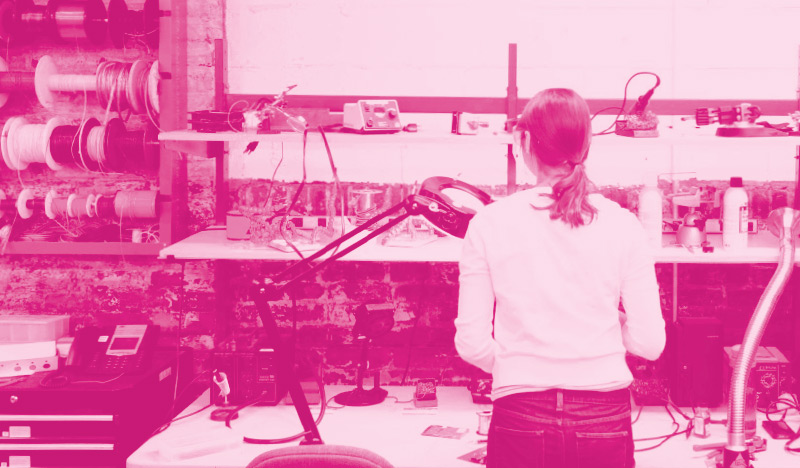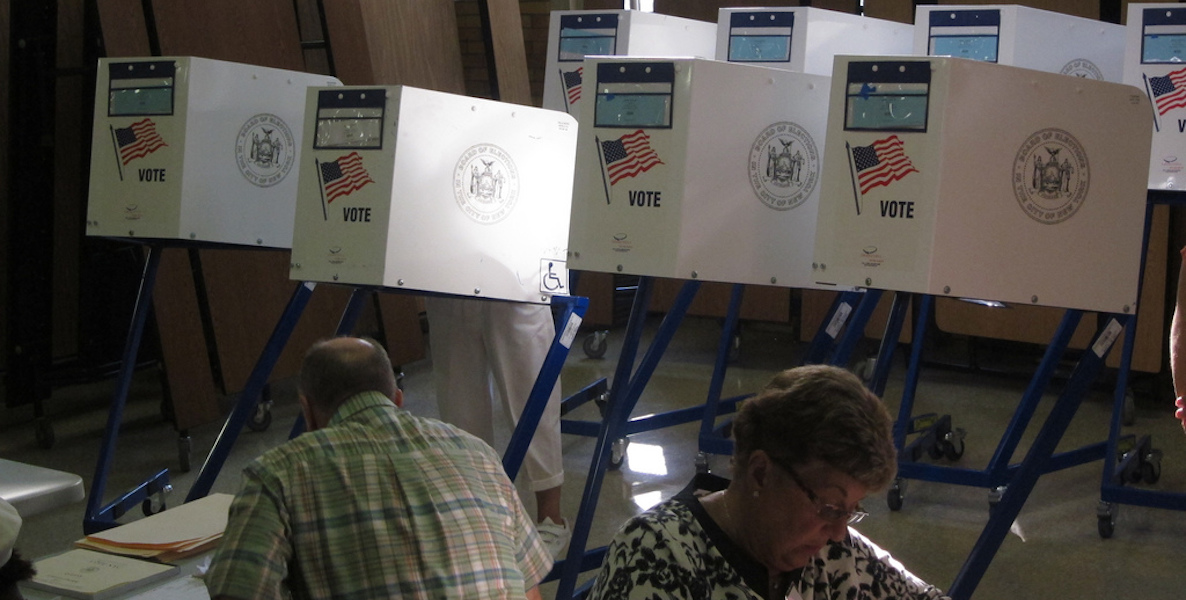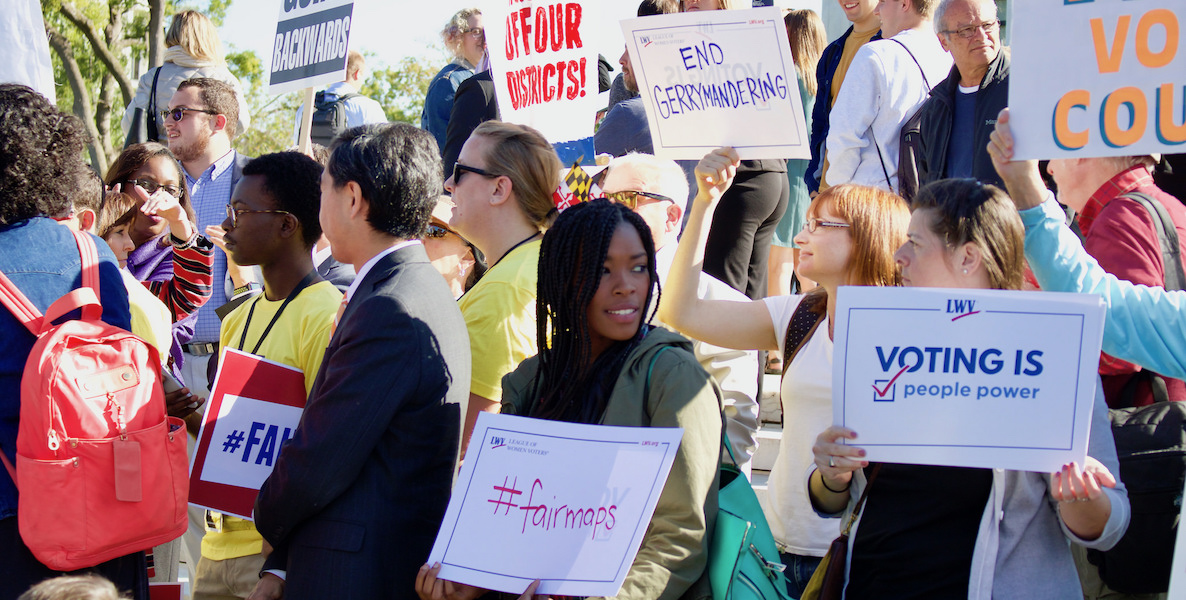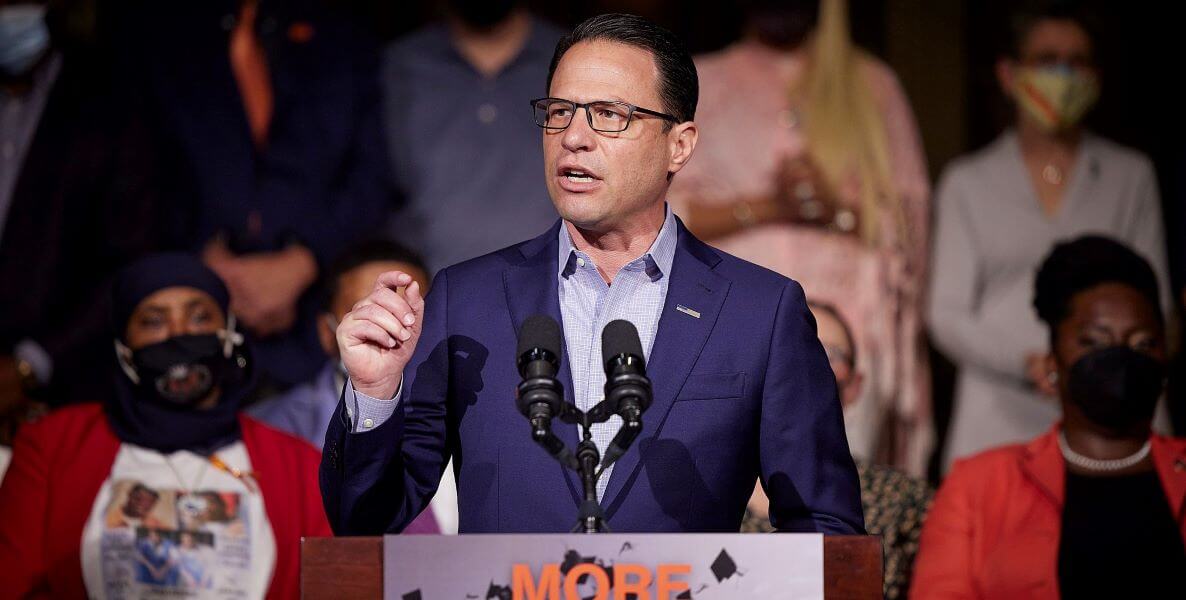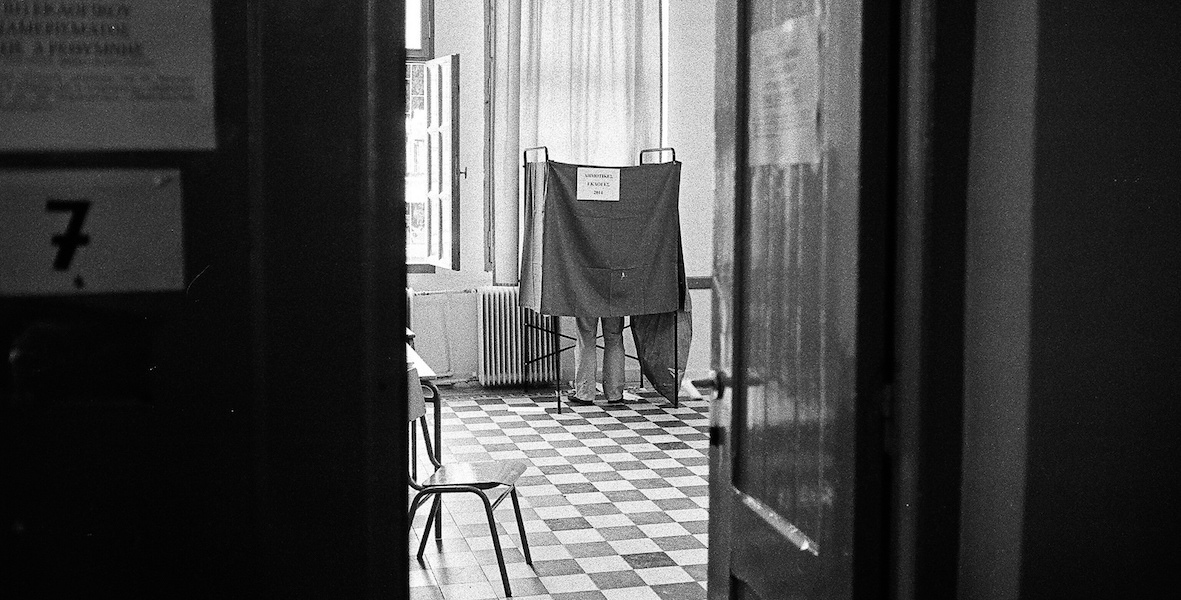Amid all the celebration in a post-Seth Williams world, where Philly just elected a social justice reformer as its top law enforcement official, let’s not forget what else we saw last Tuesday: The city is still gripped in a voter turnout crisis.
We did notice that 8 percentage point spike in turnout last Tuesday in the District Attorney’s race. And, granted, there was a 20 percent increase in total turnout from the primaries in May to the generals in November. But it really wasn’t anything to text your BFF about when it went from a 31-year low of 12 percent in 2013 to a flat 12-year high of only 20 percent.

That’s not been highlighted as much in the bevy of commentary and post-game analysis following Larry Krasner’s stunningly wide-margin defeat of Beth Grossman. In terms of wins, it sent a message not just to Republicans, but to a city status quo that favors systematic targeting of Philadelphia’s disadvantaged. But, nevertheless, it was an ugly win fraught with problems that don’t seem likely to go away anytime soon.
Only a bit over 12 percent of Philadelphia’s population of 1.6 million inhabitants voted last Tuesday. And it’s still very much racially and economically lopsided since the wards with the highest turnout were those with higher percentages of white residents and those either affluent or well-to-do—in a city that remains (if slightly) majority black and the poorest big city.
The other 88 percent of the city didn’t exercise their say in who the next city prosecutor will be. That’s staggering.
![]() It means more than 1.4 million residents had no voice in this impactful election; and out of 1,034,160 registered Philadelphia voters, only 20 percent showed. Both figures should be disturbing to anyone claiming to take a lead on issues related to social justice or civil rights.
It means more than 1.4 million residents had no voice in this impactful election; and out of 1,034,160 registered Philadelphia voters, only 20 percent showed. Both figures should be disturbing to anyone claiming to take a lead on issues related to social justice or civil rights.
Because it’s hard to achieve either if the first essential step of voting rights is diminished. No one is accusing Philadelphia of engaging in direct voter suppression; but the city political elite’s tendency to actively or tacitly confine elections to the decisions of a few is just short of it. It’s voter suppression lite.
More than 1.4 million residents had no voice in this impactful election; and out of 1,034,160 registered Philadelphia voters, only 20 percent showed. Both figures should be disturbing to anyone claiming to take a lead on issues related to social justice or civil rights.
Now, as a political strategist, I get it: a win is a win. As a lifetime Eagles fan, the same logic applies: Who cares how you get there so long as you get there. Still, local Democrats and activists, particularly those who rightly call for less incarceration and fair treatment, shouldn’t consider this a big win when knowing nearly 90 percent of residents had no skin in the game. There’s nothing adulatory, symbolic or iconic about that—nor does it mean there’s a real movement afoot in the city. It just means one campaign’s flacks outflanked the other’s while everyone else went about their daily routine.
![]() The usual retort to any grumping from “can’t-be-satisfied” agitators is that, “well, it was an off-cycle, so what do you want from us?” The term “off-cycle” shouldn’t even be in the language when discussing political engagement and participation. Either folks are participating and enhancing democracy or they’re not. You can’t embrace the “off-cycle” in one breath then extol the virtues of democratic process in the other. You can’t half-ass on change.
The usual retort to any grumping from “can’t-be-satisfied” agitators is that, “well, it was an off-cycle, so what do you want from us?” The term “off-cycle” shouldn’t even be in the language when discussing political engagement and participation. Either folks are participating and enhancing democracy or they’re not. You can’t embrace the “off-cycle” in one breath then extol the virtues of democratic process in the other. You can’t half-ass on change.
You especially can’t call it change if in North Philadelphia—a heavily low-income, black/brown area, the most decimated by incarceration trends—voter turnout still didn’t register.
![]() This is not just about this one election, as important as it was. In last year’s Presidential race, turnout was 64 percent—lower than in 2008 and 2012. Those who didn’t show up were ones whose interests most aligned with the Democratic candidate. And considering Hillary Clinton lost Pennsylvania by just 44,000 votes, that is significant.
This is not just about this one election, as important as it was. In last year’s Presidential race, turnout was 64 percent—lower than in 2008 and 2012. Those who didn’t show up were ones whose interests most aligned with the Democratic candidate. And considering Hillary Clinton lost Pennsylvania by just 44,000 votes, that is significant.
Even a look to our neighbors should make us think twice about celebrating turnout here. In Chester County, out of 345,528 registered voters, nearly 110,000 cast ballots in races that found Democrats snatching power away from Republicans who had held power there for centuries.. That was nearly 32 percent turnout—still not ideal, but much more pronounced in a county of 500,000 residents. That’s 22 percent of the population.
Other cities also outdid Philly in terms of turnout. In Minneapolis, Minnesota 43 percent of registered voters showed up—more than double Philly’s turnout and “… easily a new record for an off-year election, and was comparable to an election year when there is a statewide race,” according to city clerk Casey Carl. In fact: turnout was so high, officials were forced to order more ballots. Can you imagine such a thing in Philly?
The term “off-cycle” shouldn’t even be in the language when discussing political engagement and participation. Either folks are participating and enhancing democracy or they’re not. You can’t embrace the “off-cycle” in one breath then extol the virtues of democratic process in the other.
Next door, St. Paul, Minnesota, elected its first black mayor with a record 40 percent turnout … again, double Philadelphia turnout. The same number was found in smaller cities, such as Takoma Park, Maryland (40 percent) and Cambridge, Massachusetts (32 percent), all largely Democratic cities. Cambridge experienced a 20 percent increase from its 2015 city elections.
Philly clearly half-assed on its change, and we are entering a new era of municipal justice still uncertain about what that brings. What’s worse: We still don’t know what 88 percent of the city really wants because that segment of the population didn’t actually tell us. We can—and should—do better.
Charles D. Ellison is Executive Producer and Host of “Reality Check,” which airs Monday–Thursday, 4-7 p.m. on WURD Radio (96.1FM/900AM). Check out The Citizen’s weekly segment on his show every Tuesday at 6 p.m. Ellison is also Principal of B|E Strategy, the Washington Correspondent for The Philadelphia Tribune and Contributing Politics Editor to TheRoot.com. Catch him if you can @ellisonreport on Twitter.
Header Photo: Flickr


